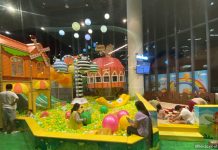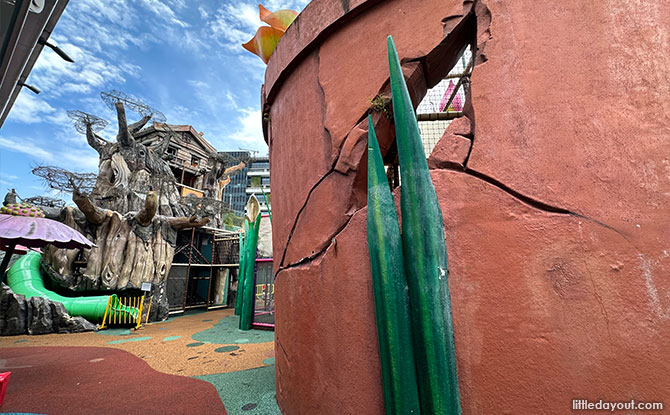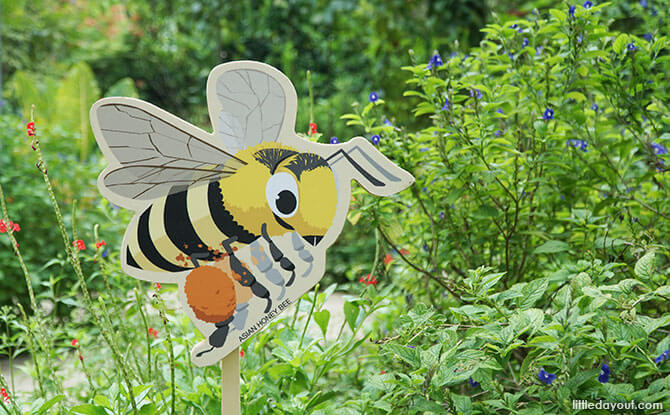
Visiting the Bee Trail at HortPark, the origins of the expression “as busy as a bee” become clear. With bees buzzing rapidly from flower to flower, trying to spot the bustling insects takes both a keen eye and a healthy dose of patience.
Don’t expect to find the big hairy bumblebees buzzing around the HortPark Bee Trail. Instead, this trail, which opened on 15 September 2018, draws in bees of the local variety.
Bees in Singapore
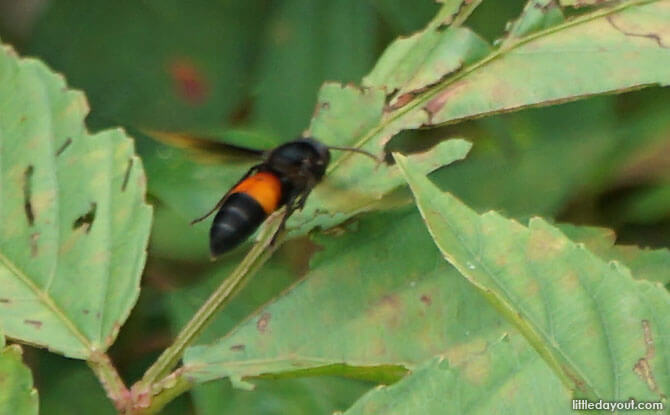
There are three groups of bees that you may encounter in Singapore – honey bees, solitary bees and stingless bees.
Honey bees live in large colonies and construct hives. They are the only native bees that can sting humans but this only occurs when they are provoked or are defending their nests.
Solitary bees include carpenter bees which carve nests in wood and leaf-cutter bees which gather leaves to build nests. They come in a variety of colours and are generally docile.
Stingless bees are very small – the size of a pinhead. They live in large colonies, produce honey and are harmless to people.
On the Bee Trail at HortPark
The Bee Trail at HortPark starts at the verdant Native Garden and meanders its way onwards to the Butterfly Garden and Edible Garden.
Bee-attracting plants, marked with a tag, lure the buzzing insects to these parts of the park. These bee-friendly plants include the Red Leea, Crepe Ginger and Blue Butterfly Bush. Butterfly-attracting plants like the Indian Snakeweed are also highly attractive to bees.
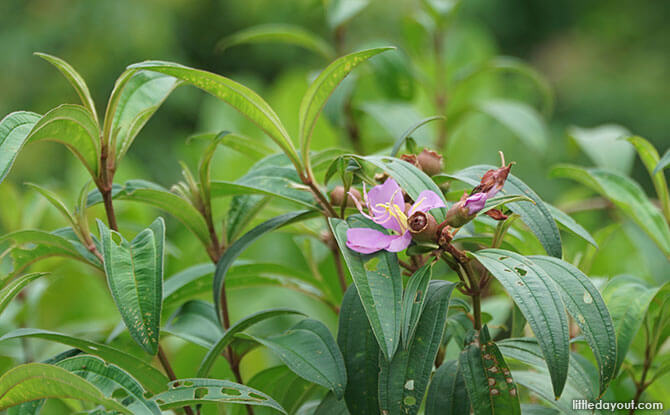
The Singapore Rhododendron is a shrub that even responds physically to bees. The frequency of the bee’s buzzing results in the plant’s pollen being released from its anthers.
Learning Sign Posts
Along the Bee Trail at HortPark, wooden bee hotels double up as information posts. These educate visitors to the role of bees within the ecosystem and the various species of bees found in Singapore. They also act as a shelter for non-aggressive species of bees.
The best time to go bee-spotting is in the mornings when it is sunny and the bees are most active.
Watch as the native bees go from flower to flower, pollinating the plants in the process. By spreading around the pollen from one plant to another, the bee’s actions help support the health of local forests.
Bees even play in pollinating fruiting plants such as chilli, pumpkins and eggplants.
The Bee Trail at HortPark is a self-guided walk. To learn more about the bees at HortPark and the Bee Trail, download a guide from NParks here.
You may also enjoy visiting this Bee Hive playground.



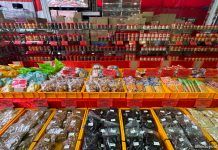

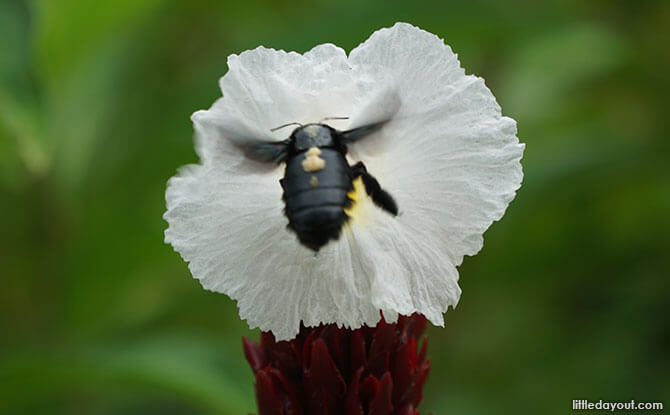
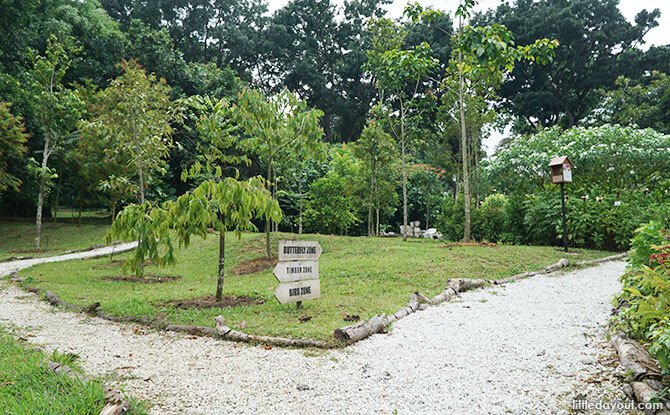
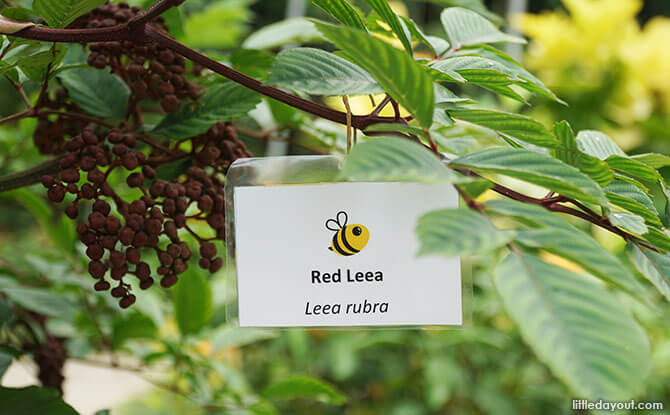
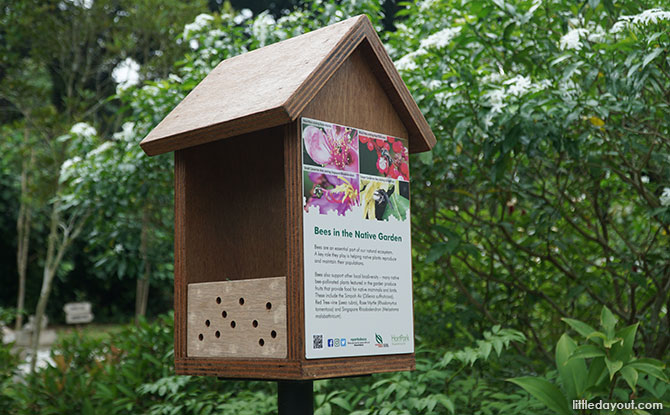
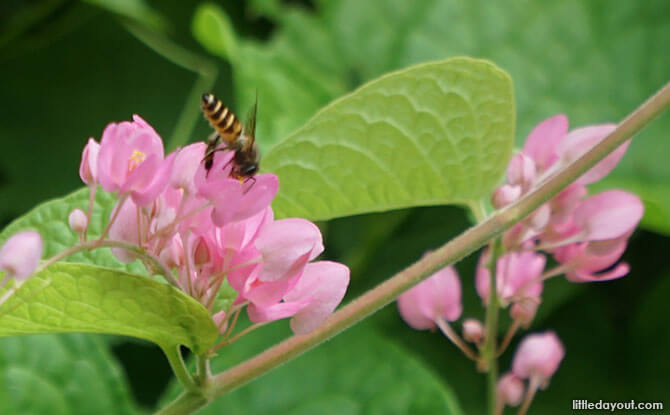
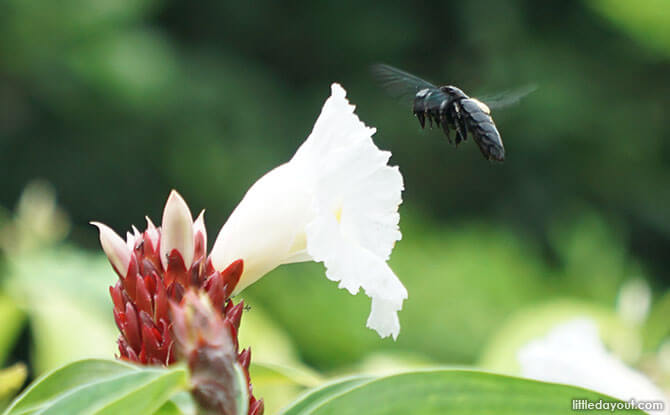
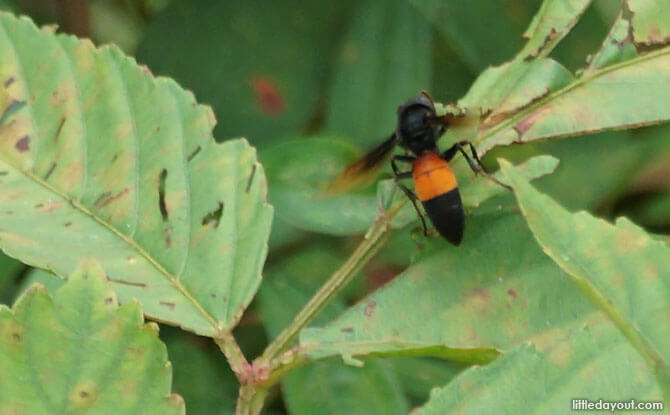
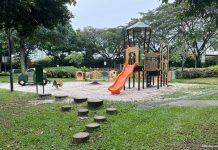


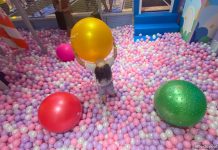

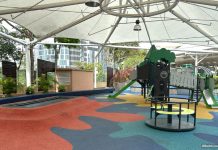
![Coastal PlayGrove: 8 Reasons To Visit The Playground, East Coast Water Play & Food [Updated 2025] Coastal PlayGrove: 8 Reasons To Visit The Playground, East Coast Water Play & Food [Updated 2025]](https://www.littledayout.com/wp-content/uploads/f00-coastal-playgrove-218x150.jpg)
